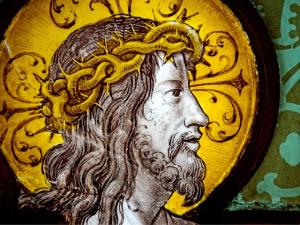
“Brothers, I could not talk to you as spiritual people, but as fleshly people, as infants in Christ. I fed you milk, not solid food, because you were unable to take it. Indeed, you are still not able, even now.” – 1 Corinthians 3:1-2.
God is truth, and it is the work of the Church that He created – the Catholic Church – to teach of Christ and the truths that God wants to be known. Despite this, at some point, the early Church thought it necessary to withhold certain aspects and teachings of Christianity.
In the following work, I will seek to explain this secrecy, known as disciplina arcani, and why it was needed. I will also examine whether this tradition of withholding certain teachings of Catholicism is still practiced today.
Disciplina Arcani
Known as the discipline of secrecy, the practice of disciplina arcani refers to a custom begun in the early Church (evidence of its use appears in the third century) of withholding knowledge of specific mysteries and doctrines central to Catholicism.
It appears that the practice is predicated upon the words used by Christ. “Give not that which is holy to dogs; neither cast your pearls before swine; lest perhaps they trample them under their feet, and turning upon you, they tear you” (Matthew 7:6). “Dogs” appear to refer to people who scorn, oppose, and abuse doctrine. “Swine” likely denotes those who would trample upon Catholic principles. That is, those who would not know the value of the Gospel and would tread it down as swine would pearls.
While disciplina arcani often meant denying entirely specific truths accepted by the Church to those outside of the Church, it frequently included a gradual vouchsafing of knowledge as well. This gradation of dispensing the truth of Catholicism seems to be what Saint Paul has in mind in 1 Corinthians 3:1-2. The analogy of food and drink illustrates that, like children who must first consume milk and soft food before they can eat meat, the truths taught by Christ must be measured out over time.
Like many things in life, disciplina arcani was born in response to difficulties.
The Need For Secrecy
The practice of withholding certain aspects of Catholic teaching from the general public appears to have occurred in response to the persecution the Church experienced in the second and third centuries.
As the persecutions of Christians waned, the practice of disciplina arcani dwindled Yet the need for the Church to protect itself did not entirely dissipate. The Church remained encircled by various forms of Paganism that were hostile to it.
After Christianity was established and secure in the fifth or sixth century, the need for such a discipline was no longer felt and became applicable only in certain situations. Disciplina arcani was limited to the slow parsing out of the Church’s teachings with regard to catechumens and Pagans.
It seemed prudent to the early Church to bring catechumens into the Faith slowly and by degrees. The premise being that one converting from Paganism could not be expected to incorporate the Catholic religion all at once. Rather, it was thought that a convert must first become familiar with certain first principles. For example, a Pagan from a polytheistic belief system would need to accept the unity of God. Only then could he be expected to be exposed to the teachings about the Holy Trinity.
Also of consideration for the Church was the possibility of spies seeking to infiltrate the Church for the purpose of betraying her teachings. As such, doctrines related to the Trinity, the sacraments, and the Lord’s Prayer were guarded closely. In fact, as late as the fifth century, the teaching of the Lord’s prayer and the Creed did not occur until within a week of one’s baptism. Advanced instruction involving the Holy Trinity and the sacraments was often not offered until after one had been baptized.
Having now endeavored to provide a glimpse of the ancient practice of disciplina arcani, I turn to whether this practice remains in effect today and, if not, whether it should be revived.
A Modern Practice?
The need to protect the Church from its numerous enemies made the Church fathers very reticent in teaching the mysteries of the Catholic Faith. As the Roman Empire and later Europe became tolerant of Christianity, the practice of disciplina arcani all but disappeared. It remained in effect as it was pertinent to catechesis.
I shall like to conclude by raising the question of whether disciplina arcani should be again a part of the Catholic Church. As of this writing, it is estimated that some 340 million Christians worldwide are subjected to some form of persecution. Much of this persecution is the result of Islamic “extremism.” In addition, an increasingly secularized culture is often hostile to Christianity.
In light of these facts, is it time for the Catholic Church to once again implement specific practices to protect the Catholic Faith? While any such efforts to protect against persecution may involve increased secrecy, raising awareness and political advocation may also be considered.
Conclusion
In this article, I have sought to explain the ancient and now-defunct practice of disciplina arcani. The persecution of the ancient Church necessitated this practice. However, in light of the increase of persecuted Christians throughout the world, should some form of disciplina arcani be reintroduced in the Catholic Church?












